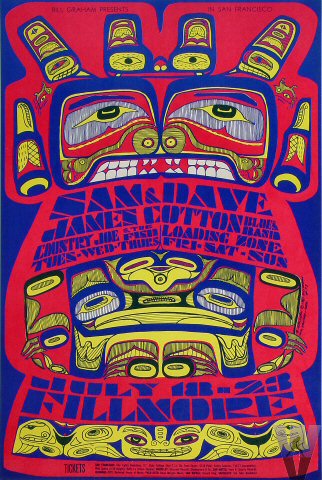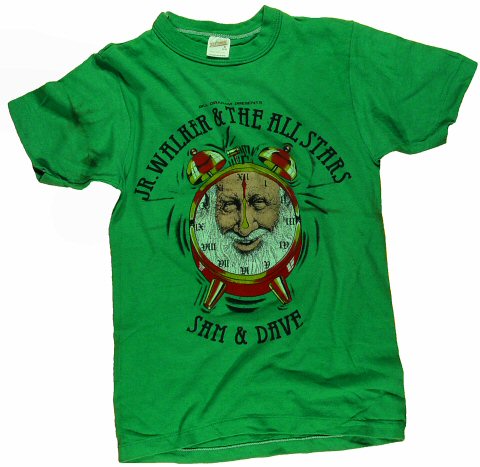SAM AND DAVE

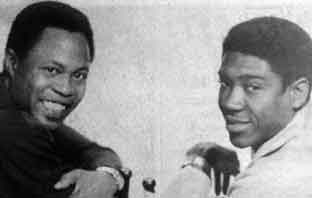
duos, One of the most exciting live soul acts of the '60s and soul music's most popular
Sam and Dave scored a series of hits from 1966 to 1968, highlighted
by "Hold On! I'm Comin'" and "I'm a Soul Man."
 \
\
Sam Moore and Dave Prater, veterans of the gospel groups The Melionaires and The Sensational Hummingbirds, respectively met at the King of Hearts club in Miami in 1961. They teamed up and recorded for Roulette Records in the early 60s with little success. Jerry Wexler signed them to Atlantic Records in 1965, with their singles and albums were issued on the Stax label. Recording at the Stax studio in Memphis, Tennessee under songwriter-producers Isaac Hayes and Dave Porter, who wrote virtually all their hits.. Usually recording with Hayes on the piano and backed by Booker T. and The MGs and The Memphis Horns, Sam and Dave had Top 10 R&B hit with "You Don't Know Like I Know in early 1966. "Hold On! I'm Comin'" a R&B hit and a Top 10 Pop hit, followed by R&B "I Said I Wasn't Gonna Tell Nobody," "You Got Me Hummin'," and "When Something Is Wrong With My Baby." They later had Top 10 Pop and R&B hits with "Soul Man" and "I Thank You."
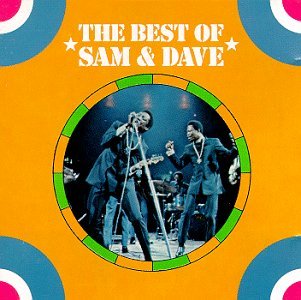
In 1968 Sam and Dave's recording contract reverted to Atlantic when Stax was sold to Gulf-Western. The subsequent hits were largely R&B, most notably "You Don't Know What You Mean to Me" and "Soul Sister, Brown Sugar." Disbanding for solo careers in the late 1969, they reunited from 1972 to 1975, recording Back at 'Cha for United Artists. They separated again, but reunited after the success of The Blues Brothers' late 1978 recording of "Soul Man" to tour through 1981. In 1986 Moore re-recorded "Soul Man" with Lou Reed for the film of the same name. Prater was killed in a car accident near Sycamore Georgia, on April 9, 1988. Moore appeared with Junior Walker in the 1988 film Tapeheads and enjoyed a renewed solo career in 1994 when his duet with Conway Twitty "Rainy Night In Georgia" appeared on the Top 10 crossover album Rhythm, Country, and Blues.
Sam and Dave were inducted into the Rock and Roll Hall of Fame in 1992
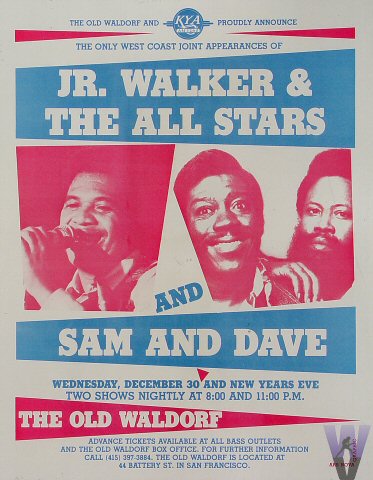
The1960s was a period of extreme change in regard to African American music, and those changes were most visible in the singers of that time, Indeed, the role of the black performer in any era is crucial to the personalization of the music, for the African American singer is part shaman, part trickster, part seducer, part dancer, and part preacher. Sam Moore and Dave Prater— the legendary R&B duo of Sam & Dave — not only exemplified those grand roles of the African American tradition, hut in some ways they were the last practitioners of an R&B performing tradition that gave way to the advent of technology, the decline of the black touring (chitlin) circuit, and the increasing influence of soul and (gasp!) disco music. Sam & Dave’s career epitomized the highs and lows of show business: The rise from humble and obscure beginnings, the grueling tours and recording sessions, personal feuds and breakups, and, unfortunately, drugs. It is the musical legacy of this dynamic duo, however, that we celebrate in this collection— music that retains the vitality, power, and passion that took the world by storm more than 25 years ago.
To understand the origins of this duo one must go to the American South, where for more than 300 years the African slaves and their descendants created spirituals, work songs, field hollers, and the blues. In the 20th century, the blues and spiritual traditions, with their strong African retentions, were all over the South.
Samuel David Moore was born on October 12, 1935, in Miami, Florida, and David Prater was born on May 9, 1937, in Ocilla, Georgia. Moore’s throaty vocal delivery was honed in his father’s gospel church, and he made his first record with The Majestics, a doo-wop group in Miami that later came to he known as The Gales. He later joined The Melionares and was contacted by the manager of the group The Soul Stirrers because their lead vocalist, Sam Cooke, was leaving the group. Moore accepted but after attending a Jackie Wilson performance decided that was the way to go, trading the Sunday morning service for the Saturday night function. Johnnie Taylor took Cooke’s place and the rest is history.
